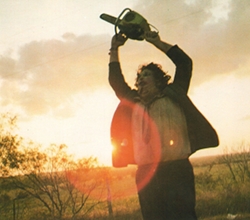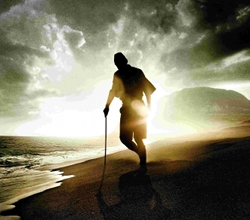Review: Happythankyoumoreplease (2010)
Josh Radnor’s Happythankyoumoreplease is not as cutesy and self-important as it is space-less, case-sensitive title would indicate. In fact, there are certain unsung directorial elements at work that signal Radnor could potentially have a promising future as a filmmaker. But the undeniable truth is that the film seems to resemble its quirky ensemble cast more than it should – it is frequently lost and unfocused in spite of being snappy and smart, more often in search of the point than it defines the point.
Radnor (best known for TV’s How I Met Your Mother) leads the ensemble as Sam, a young author struggling to sell his latest novel. Sam’s best friend is Annie (Malin Akerman), a popular social butterfly among her in-crowd of New York intellectuals. Both Sam and Annie are smart and self-sufficient, but in the midst of that film-friendly predicament where they are in search of self-actualization in modern bohemia. For Sam, the continued struggle to seek acceptance in the publishing world leads to a string of rejections that spills into his personal life; he can’t commit to a relationship in the way that publishers can’t commit to his book. Annie suffers from Alopecia, the autoimmune disorder that results in a loss of all body hair. She wears her baldness well and speaks about the disorder with pride, but she has a sneaking lack of confidence that contributes to her own string of short, unsatisfying relationships.
Of course, these characters are challenged by new people that unexpectedly enter their lives. Sam finds a lost young boy named Rasheen (Michael Algieri) on the subway, where he has separated from the latest in a string of foster homes. In an ill-advised fit of impulse, Sam takes the kid into his home without informing social services, forming less of a father-son relationship as a friendship between emotional equals. He’s just as lost as the kid is. On the same fateful day, Sam also stumbles across Mississippi (Kate Mara), a waitress who moonlights as a cabaret singer. He similarly tries to quickly progress this relationship, but Mississippi seems wiser to his emotional impulses.
Early in the film, Sam meets with a publisher who coolly snipes at his inability to write characters that a reader would consistently care about. Radnor seems to suffer from the same problem as a screenwriter. He has a clear grasp of his themes but doesn’t have more than a tertiary understanding of how each character would express those themes. Further, Radnor’s screenplay seems to simultaneously strive for a fully formed ensemble and a self-imposed leading man showcase. Sam and Annie are clearly the film’s central characters, Mississippi and Rasheen alternate between strong supporting players and helpmate afterthoughts, and there are still more characters, of varying significance and effectiveness. Arrested Development veteran Tony Hale excels as Sam #2, so labeled by Annie so she can delineate between her best friend and this new guy, who is smitten with Annie in a way she is unprepared to accept. In contrast, Radnor’s seems hard-pressed to include Mary Catherine (Zoe Kazan), whose relationship with longtime boyfriend Charlie (Pablo Schreiber) is tested when he gets a job offer in Los Angeles and she is reluctant to move from her lifelong home. In a film that largely avoids the serendipitous interconnectivity of many ensemble dramedies made in the shadow of Altman, the Kazan/Schreiber story thread feels like a glossed-over addition, tacked on to further the film’s young-people-in-transition thematic structure.
Clearly, this is a lot of material to pack into 100 swift minutes – too much, in fact, for us to fully engage with. Witnessing the filmmaker’s struggle to reconcile his themes with his characters is an intriguing mirror of said characters’ struggle to reconcile the problems in their lives. Radnor possesses solid instincts as a filmmaker, but seems lost in terms of how to carry them out in this story, with these characters, at this very early stage in his development as a writer/director.















 Review: Confessions (2010)
Review: Confessions (2010) Review: Martha Marcy May Marlene (2011)
Review: Martha Marcy May Marlene (2011) Review: The Future (2011)
Review: The Future (2011) Review: The Puppetmaster (1993)
Review: The Puppetmaster (1993) Review: The Tree Of Life (2011)
Review: The Tree Of Life (2011)






